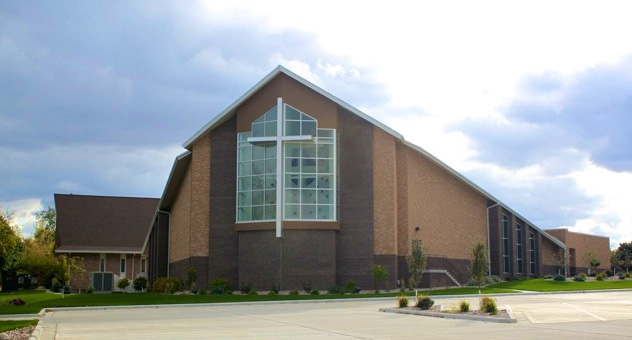What does it mean to be ordained?
“After you put these clothes on your brother Aaron and his sons, anoint and ordain them. Consecrate them so they may serve me…” Ex. 28:41
If you had a chance to attend the congregational meeting this past week you heard Merlin Wynia lay out a basic vision of what it could look like to have a 2nd ordained pastor on staff. This issue was brought up because I plan to complete my requirements for ordination sometime next year, and at that point the church would have the option of “calling” me to ordained ministry. But what does that really mean?
All denominations have certain requirements aspiring pastors must fulfill in order to be ordained and declared “fit” for the office of “Minister of Word and Sacrament,” after which time they are eligible to serve communion, marry people, and lead consistory. In most cases that includes attending seminary, being supervised in ministry for several years, and finally being examined on biblical knowledge and other church-related competencies. The RCA is no different. We tend to be on the demanding end of the spectrum compared to other denominations, though requirements have relaxed somewhat in recent decades. There was a time when the only acceptable option was for American pastor candidates to attend seminary in Europe, and during those 150 or so years about ¼ of all such individuals died in shipwrecks while trying to cross the ocean or from sicknesses picked up along the way! Yikes!
Today ordination has changed quite a bit. The role of pastor differs greatly from church to church, more and more pastors are called into ministry later in life, and the emphasis has generally switched from seeing pastors as a separate class of Christian (clergy) to seeing all followers of Jesus as “ordained” to ministry, with pastors spending more time guiding or coaching others in ministry than doing all the ministry themselves. This is why Mike prefers to be called “Mike” instead of “pastor” or “reverend.” He wants to emphasize that he really is no different or more qualified for ministry than anyone else, and we all have a role to play. There are extreme examples of this, such as the Quakers, where there is no such thing as pastors, or at least you might say everyone is a pastor.
So in one sense it is hard for me to aspire to the status of ordination. I am of the same mindset as Mike and do not look forward to having some title added to my name, which means nothing to me personally, and might even compromise my ability to move conspicuously among the unchurched. But on the other hand I can humbly say that God has “called” me to set aside my life to study His Word, experiment with new ministries, and be prepared to follow wherever Jesus leads, all for the purpose of serving God’s people. In my mind that sense of calling is really the foundation of ordination, and it has been confirmed by people in numerous churches, my professors at seminary, and even some people in Luverne.
I hope that helps explain the meaning of “ordination” a little bit, and over the coming months we will all pray together whether or not my personal calling is a good fit for ARC in the long term or not. I trust God will answer that questions in His perfect timing!
Cory Grimm









